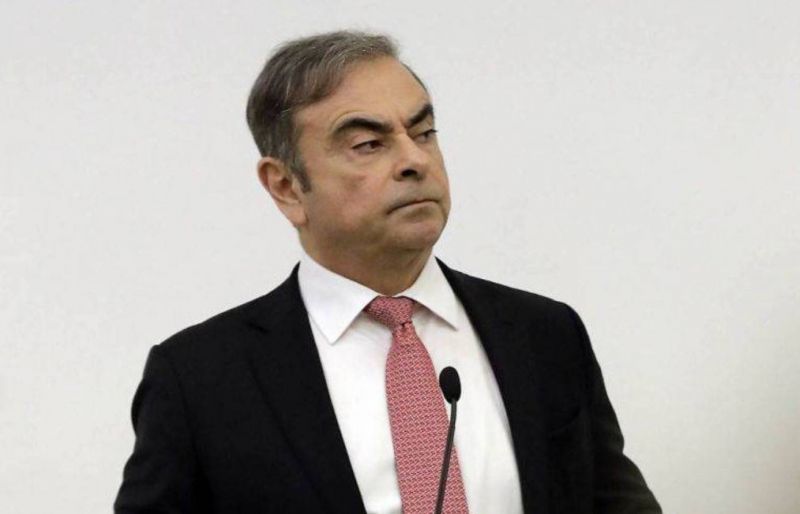
Carlos Ghosn, during a press conference in Beirut, in 2020. (Credit: AFP archive photo)
Judge Habib Mezher, president of the Beirut Court of Appeal, has not yet ruled on the Oct. 17 decision — issued by the judge of urgent matters in Beirut, Hala Naja — ordering that former Nissan head Carlos Ghosn vacate his residence in Achrafieh.
Naja’s decision was based on a lawsuit filed by Phoinos, an investment firm affiliated with the Japanese carmaker.
However, a legal source close to the case told L’Orient-Le Jour that the Court of Appeal would likely deliver its ruling on the appeal Ghosn filed on Oct. 27, before the court against Judge Naja’s order, towards the end of last week.
Judge Mezher did not respond to L’Orient-Le Jour’s request for information about the expected date of the ruling.
The above-mentioned source said Phoinos’ lawyer responded to Ghosn’s appeal within the legal time limit of four days from the date on which the appeal was lodged, and that the information needed for a decision to be made was therefore available.
Speaking to L’Orient-Le Jour on Monday, another source said that in any event, the Court of Appeal’s decision will come “this week or the week after,” particularly since it is an emergency interim proceeding.
No suspensive effect
The source added that the appeal against the emergency interim proceedings does not suspend the enforcement of the decision. Judge Naja gave Ghosn until Nov. 20 to vacate the premises. Her decision will be enforced if the Court of Appeal has not handed down its ruling by then. The court must therefore rule before Nov. 20.
If the 2nd instance court upholds Judge Naja’s order, Ghosn will have to leave his residence. If, on the other hand, it overturns the ruling, he will not have to leave.
However, whatever the decision, it will be provisional and will not be binding on the trial judge with whom Phoinos filed the lawsuit in 2019 against Ghosn for “trespassing on private property,” on which he will have to rule.
According to Naja’s order, Ghosn claims having signed an agreement with Nissan granting him the right to live in this residence, for which he obtained a promise of sale. He also stated that he restored the house at the cost of major works he had undertaken.
Phoinos the company stated that it is the owner of the house and that the agreement with Nissan was not binding, especially since it has a legal status independent of the parent company. Phoinos added that if it had authorized Mr Ghosn to occupy its property, it wants it back now. Phoinos has clarified that it perceives Ghosn’s continued occupation of the residence as illegal.
This article was originally published in French in L'Orient-Le Jour. Translation by Joelle El Khoury.